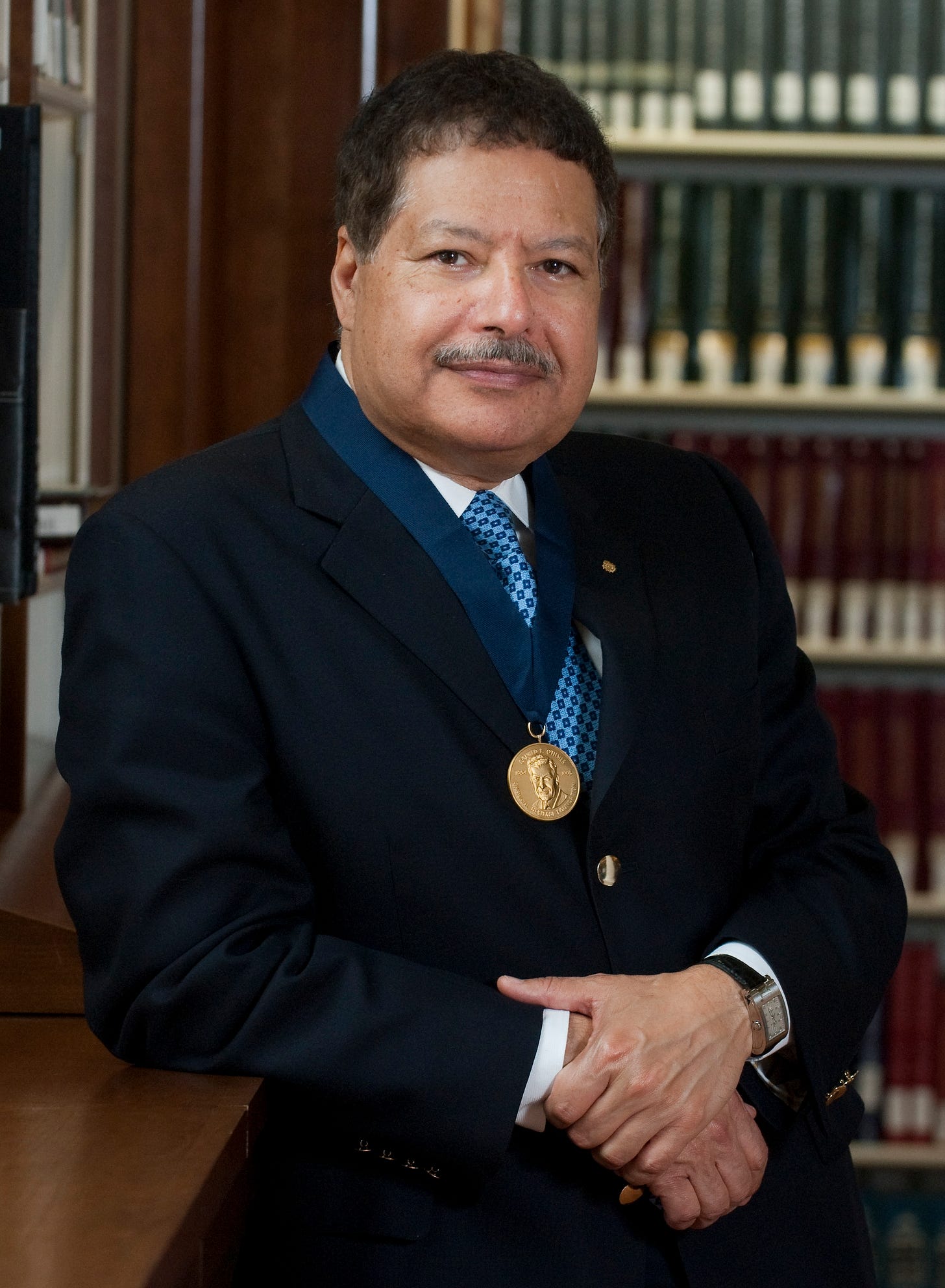Nobel 2024: Africa's Scientific Potential Still Untapped
Calling Out African Governments for Their Failure/Lack of Urgency to Invest in Research and Development
Ahmed Hassan Zewail was born in 1946 in Damanhur, some 60km from Alexandria, the second-largest city in Egypt. As a young boy, he was intrigued by the mathematics of chemistry.
So much so that in one of his many childhood experiments, he used his mother’s oil burner and a few glass tubes to observe how wood could be transformed into a liquid substance and burning gas.
This curiosity laid the foundation for his later work as an experimental scientist. He experimented with various things, but at some point, he doubled down on the study of coherence—the idea that two waves always have the potential to interfere. This field of study led to the discovery of what Chemists call “Femtochemistry.”

In 1999, at the young age of 53, he won a Nobel Prize in Chemistry for this discovery. When Bengt Norden, the chairman of the Nobel Committee of the Royal Swedish Academy of Science, presented the Nobel to Zewail, he had this to say:
“Zewail's use of the fast laser technique can be likened to Galileo's use of his technique, which he directed towards everything that lit up the vault of heaven. Zewail tried his femtosecond laser on literally everything that moved in the world of molecules. He turned his telescope towards the frontiers of science.”
That is the story of the first and ONLY black African to win a Nobel in a field that is not literature or peace. Yes, black is a stretch because he was Egyptian, and they tend to be more Arab-looking but still black African.
That is not to say white Africans who’ve won in Medicine, Physics, and Chemistry are less African. However, white Africans often have access to resources outside the continent. In the same vein, it does not mean that Nobel Prizes in literature or peace are of less value.
However, one cannot deny that Nobel Prizes in the sciences have a way of fundamentally reshaping or changing how the world works. Beyond that, the reshaping often comes with unassailable economic benefits.
Think about 2019. The Prime Minister of Ethiopia, Abiy Ahmed, won the Nobel Peace Prize for finally ending Ethiopia’s war/stalemate with Eritrea. Commendable life-changing work! Barely a year later, in 2020, Ethiopia devolved into a civil war that, according to data, led to the deaths of close to 600,000 people.
In that same year, John B. Goodenough, M. Stanley Whittingham and Akira Yoshino were awarded the Nobel Prize in Chemistry for their contributions to the development of the lithium-ion battery.
This rechargeable battery is the genius behind wireless electronics such as laptops and mobile phones. It is a big part of the reason I was able to write this piece and that you can read it from wherever you are in the world.
See where this is going? Nobel Prizes in Sciences reward inventions that revolutionize how the world works. Yet, only one Black African has won such a Nobel. So on and on, Africa goes, always a follower, incapable of being first in any significant invention.
No, this is not an indictment on the Nobel Committee. You cannot reward what is not there. It is one of the African governments. In their lack of urgency to invest in research and development.
They forget that scientific inventions always come with patents that can change the fortunes of an entire country. Dr. Akira Yoshino patented the first lithium-ion battery. Since then, Samsung has built upon the technology and owns 13,145 lithium ion-related patents.
Samsung generates over $195 billion in revenue, accounting for 22.4% of South Korea’s GDP. What started with three scientists in a lab is now responsible for almost a quarter of a country’s GDP.
One of the best parts about investing in research is the economic benefits. Dr.Yoshino is not South Korean, but South Korea’s deliberate investment in research and development allowed the country to quickly take advantage of and build upon Dr. Yoshino’s patent.
In contrast, Africa’s lack of investment has led to patent poverty, which, by extension, has robbed the continent of subsequent economic benefits. Look at data from the World Intellectual Property Organization (WIPO).
In 2023, WIPO reported that 3.46 million patents were filed globally in 2022. Of these, only 150,960 originated from Africa. While South Africa had the largest share of African patent filings, the inventors behind these patents were predominantly non-South Africans.
The United States, Europe, and China accounted for the highest volumes of patent applications filed in South Africa.
That is the state of research on the continent. Africa only invests 0.45% of its GDP in research, which makes it impossible to nurture an environment conducive to groundbreaking and world-leading innovations.
Therefore, it was not a surprise that when the Nobel Prize Winners were announced this past week, once again, there was no African in the sciences.
This is not because the continent lacks brilliant and capable academics but because of the lack of funds and opportunities to express this brilliance.
This is a call out to African governments to do better!
Thanks for reading Africa: Not an Afterthought, where we lead the conversation on how Africa can leverage technology, trade (AFCFTA), regional integration and Pan-Africanism to build a continent that is no longer an afterthought.
If you enjoyed this, kindly:




